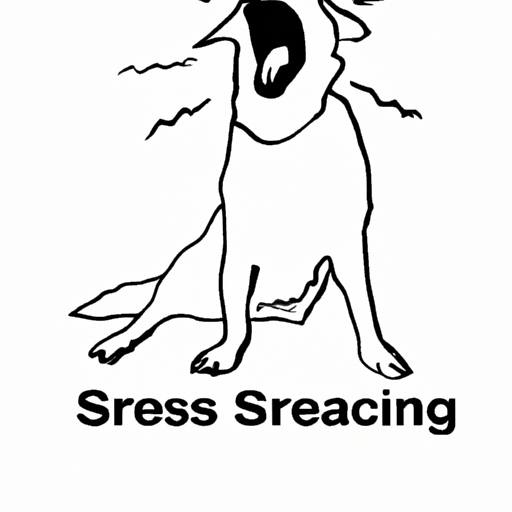“`markdown
Do Dogs Yawn When Stressed?
Understanding Your Dog’s Body Language
Your dog might not be able to tell you when they’re stressed, but their body language speaks volumes. Yawning is one of those signs that could indicate your furry friend is feeling anxious, stressed, or uncomfortable. Much like in humans, yawning in dogs is not always a sign of tiredness. In fact, it could be a communication tool or a coping mechanism. Paying attention to your dog’s body language can help you understand their emotions better and provide the right care.
The Science Behind Dog’s Yawning
You might wonder why dogs yawn when they are stressed. It’s because yawning can help cool the brain, improve alertness, and cope with stress.
- Cooling the Brain: The process of yawning involves taking in a large amount of air, which can help cool the brain and improve its functioning. This can be particularly beneficial when a dog is feeling stressed or anxious.
- Improving Alertness: Yawning can also help increase heart rate, blood flow, and brain activity, which can make a dog more alert and prepared to deal with a stressful situation.
- Coping with Stress: Yawning can serve as a displacement behavior, which is a behavior that animals exhibit when they are conflicted or stressed.
Yawning and Other Signs of Stress in Dogs
Yawning isn’t the only sign of stress in dogs. There are several other behaviors you should look out for:
- Excessive licking or chewing
- Pacing or shaking
- Losing control over their bowels or bladder
- Changes in appetite
- Aggression or other changes in behavior
If your dog is displaying any of these signs along with excessive yawning, it’s likely that they’re feeling stressed.
How to Help Your Dog Cope with Stress
As a responsible and caring dog owner, your first instinct might be to comfort your dog when they’re stressed. But how can you do that? Here are some strategies:
- Provide a Safe Space: Make sure your dog has a quiet, comfortable place where they can retreat when they’re feeling stressed.
- Exercise: Regular exercise can help reduce stress and anxiety in dogs.
- Training: Training can provide mental stimulation for your dog and can also give them a sense of control, which can reduce stress.
- Consult a Vet: If your dog’s stress seems severe or ongoing, it’s important to consult with a veterinarian or a professional dog behaviorist.
FAQ
Q: Can all yawning in dogs be considered a sign of stress?
A: No, not all yawning is a sign of stress. Dogs, like humans, also yawn when they’re tired or bored.
Q: Should I be worried if my dog yawns a lot?
A: Frequent yawning combined with other signs of stress might be a cause for concern. When in doubt, consult a veterinarian.
Q: What other behaviors indicate stress in dogs?
A: Other stress signs in dogs can include pacing, excessive licking, changes in appetite, and aggression.
Q: How can I help my dog when they’re stressed?
A: Providing a safe space, regular exercise, and training can help. In severe cases, consult a vet or a professional dog behaviorist.
“`



